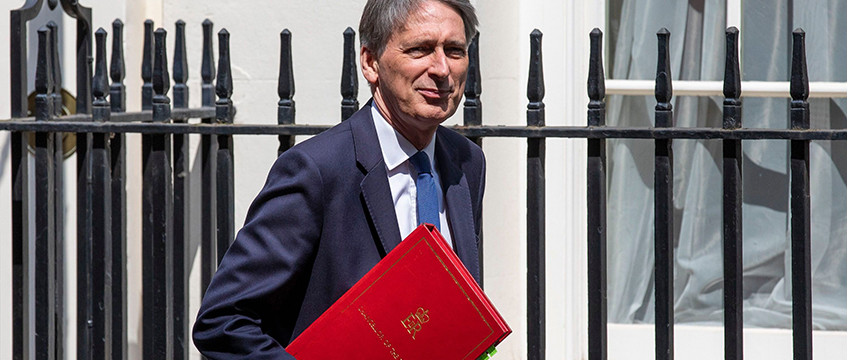Those in government are motivated by little else than increasing their popular standing so they can continue in office. The problem, however, is that all too often they have few options in achieving this end. After all, a policy welcomed by some voters will be resented by others.
With this in mind let me make the case why I believe that before year end the chancellor will announce a much argued for, but little expected, change to how we are taxed and one which will be widely welcomed within the UK.
Motive for change
Philip Hammond will no doubt argue that the motive for the change I am confident is upon us is a pressing economic practicality. And he will be perfectly justified in this claim.
That said, be in no doubt that the move will also serve his party’s political opportunism; after all – and to repeat – what Philip Hammond will unveil is certain to play to the popular vote.
I say it will be well received, because it will target business tax and not personal income tax. And since individuals vote and not businesses, the change can hardly work badly at the ballot box.
Another aspect where Mr Hammond will earn political capital out of his announcement is where he will argue that the change, while long overdue, is only now possible because we are leaving the European Union, and that body’s directives demanding uniformity of sales taxes within its member states.
The chancellor’s announcement will play perfectly to those, leavers and remainers alike, who are demanding they see clear evidence of what the UK will gain in exiting the EU.
The move will also play well with those insisting on firm action against what they see as blatant corporate tax underpayment; system favouring Goliath over David.
The move I am expecting will, moreover, play well with those demanding far greater devolution of power from Westminster.
So what is this change? An end to what is commonly known as business rates. This is a system which quite frankly has little to recommend itself.
One needs only to consider how the rateable values determined by the 4,000 employee-strong Valuation Office Agency are frequently challenged, and whose appeals are often upheld after frustrating delay.
New sales tax
In its place I expect to see the introduction of an entirely new sales tax, one set by local government and spent as is seen fit, at that level too.
We will move from a situation where premises in the hands of a corporate Goliath face the same business rate as the small family-run business sitting alongside.
Instead, local business tax will be linked directly to respective revenues. The move will of course not be without its critics. There will be those who warn that this introduces a “business cycle” risk to what is raised from local business tax.
The best response to this is to point to how better to have an exposure to modest cyclicality than something which is fostering secular decline among retailers.
Because as things stand business rates are contributing in no small way to forcing physical retailers to the wall. Remember, business rates came about long before the internet dramatically changed the competitive landscape.
In general terms then, what we have is a tax system where commercial real estate is taxed more heavily than other forms of wealth or other factors of production, and this has caused inefficiencies in property use.
The beginning of widespread tax change within Britain. Having not had the option to do so while within the EU we can also look forward to seeing an end to our one-size-fits-all system of VAT.
This too will have an impact on property markets since VAT flexibility will be focused on real estate selling goods and services which are not spatially tradeable.
After all why should the VAT rate for a hotel stay, a restaurant meal, a coffee or a theatre ticket be the same everywhere across the UK? The answer is that it shouldn’t be and before too long will no longer be.
Savvas Savouri is a partner and chief economist at Toscafund Asset Management











